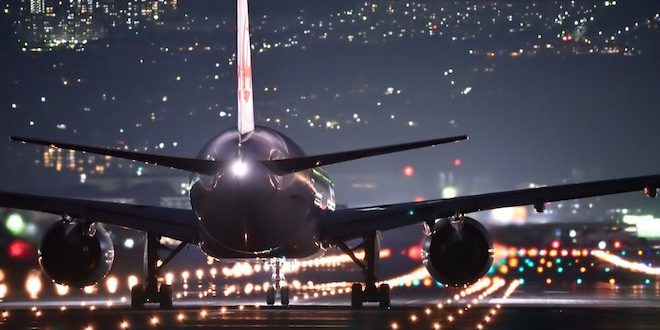Last Updated on February 8, 2024
Love to travel? Love to always be on the go? Or maybe you love airports. The excitement, the big electronic boards announcing departures of planes to exotic locations like India, Nepal, or Thailand. Maybe you’ve always wanted to be a pilot and have worked hard over a number of the year to acquire the skills needed for a career in aviation. Or perhaps you aren’t cut out for flying for one reason or another, but still can’t keep away from the international travel excitement a career in aviation has to offer.
An aviation degree, like that offered by the California Aeronautical University or CAU, can not only open you up to the world of flying and travel opportunities. But it can also provide you with an exciting, high paying career in the business of travel.
We’re not just talking about being a pilot. Degrees in aviation design, flight group, aviation administration, air traffic controller, customer service, cabin crew, safety management systems, airport management, airport communications, aviation statistics… And even aviation law or all lucrative careers that not only keep travel junkies in the air, they are as crucial to the travel industry as wings are to an airliner.
Here are 5 more reasons why travel lovers might want to take off their career with an aviation degree:
1. Aviation Degrees offer Flexible Working Hours
View this post on Instagram
If you’ve made the decision to be a pilot or a cabin crew professional, you have the benefit of working hours that suit your busy life. After all, you might be flying to Cairo one day and wish to take a few days off to explore the amazing historical sites Egypt has to offer. You can even choose the flights you are most comfortable flying with, either day or night flights.
An aviation degree offers a gateway to a world of opportunities beyond just piloting, including roles that involve ground support equipment (GSE). While the allure of flying captivates many, the backbone of the aviation industry lies in the efficient functioning of ground operations, facilitated by an array of specialized equipment and machinery. Ground support equipment ensures smooth aircraft maintenance, cargo handling, and passenger services, integral to the seamless operation of airports worldwide. Whether it’s managing aircraft tugs, baggage loaders, or refueling vehicles, proficiency in GSE operations is vital for aviation professionals across various domains.
By pursuing an aviation degree, individuals not only embark on a journey into the skies but also gain insight into the essential ground-based operations that keep the industry soaring.
2. Access to Cutting Edge Aviation High Tech
International travel by air isn’t nearly what it used to be even as recently as the 1970s and 80s when commercial flying was still a fly-by-wire affair. According to commercial pilot, Ellen Corkrum, very few industries benefit from constant improvements in aeronautical high tech like aviation and aviation management. Improvements in fuel efficiency, safety protocols, ground crew tech, smoother and faster flights, air-to-ground tower coordination and communication, computerised flight, weather reporting, paperless check-ins, and even modern conveniences aboard flights at 40,000 feet in the air like WiFi, gyms, and on-board showers are now a reality.
Travelers hoping to earn an aviation degree will experience all of this high tech and more. Who knows what the future will hold. Commercial flights to a resort on the light side of the moon? It’s already in the works.
3. Aviation Degrees allow you to Design your own Airport
View this post on Instagram
You love airports. You love everything about them. The hustle, the bustle, the snazzy uniforms worn by all the on-ground and in-flight aviation professionals. You love the wide open terminals and the mammoth window walls that look out onto a tarmac packed with jet liners leaving for Rome, Paris, Madrid and even Mali’s Timbuktu. Millions upon millions of travelers pass through some of the world’s most popular commercial hubs like New York’s JFK, London’s Heathrow, and Paris’s Charles De Gaul International Airports.
The designs of some of the world’s most popular airports are tourist destinations in themselves. Such as the Marrakesh Menara in Morocco with its white, mosque-like design and the tent/teepee-like terminal roof of the Denver International Airport. Airport designers also implement changes to existing older airports in order to make the traveler’s experience that much more enjoyable.
4. Aviation Degrees Help you Help Other Travel Lovers
For some travelers hoping to score an aviation degree, piloting a plane isn’t their number one goal. But working directly with other travelers is. Maybe you can get a weary traveler a better seat on a plane for no additional cost. One further upfront so the ride isn’t so bumpy during those nerve wracking, turbulent times. Or perhaps you can use your computer and organizational skills. And score a passenger an earlier flight so they can get to their destination much faster. Maybe you can help a traveler with the holy grail of air travel: upgrading to 1st class for free.
5. Aviation Degrees can Make You Stop the Bad Guys
View this post on Instagram
While safety in the air is probably considered the number one priority of all airlines, security starts on the ground long before a flight takes off. Those travelers who desire a career in aviation might also desire a career in law enforcement. Why not combine the two with a job as Airport Security Manager. These brave professionals not only manage all aspects of security. They’re also on the front lines of emergency situations and evacuations should there ever be a need. Security managers will also act as detectives by overseeing airport surveillance, the examination of CCTV security footage, and directing subordinate security officials.
For some, travel is not only a passion, it is a way of life. Investing in an aviation degree, even if you have no interest in being a commercial pilot, is a great way to devote your life to the business of travel.
 Travel for Food Hub The Food Blog for Travel Lovers
Travel for Food Hub The Food Blog for Travel Lovers














